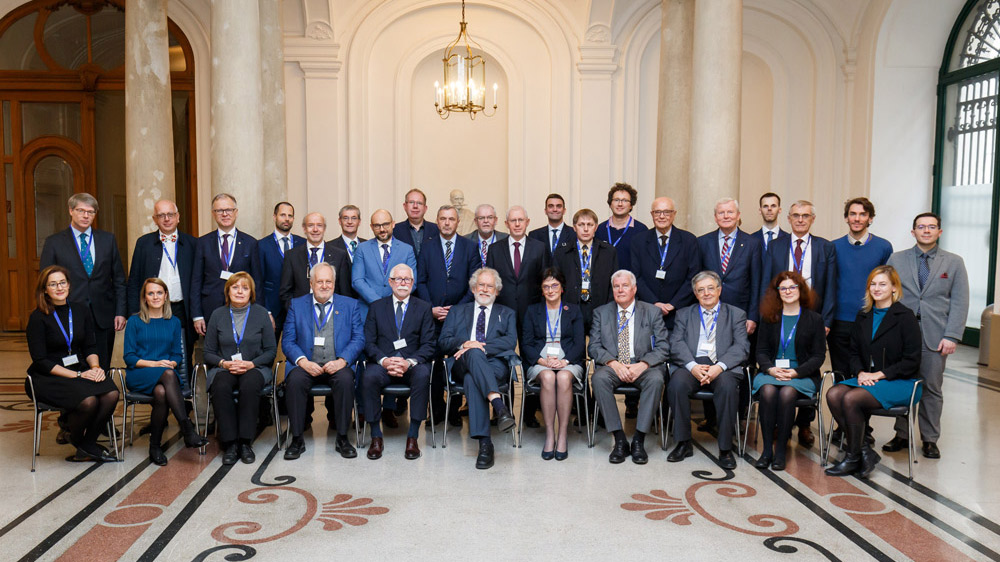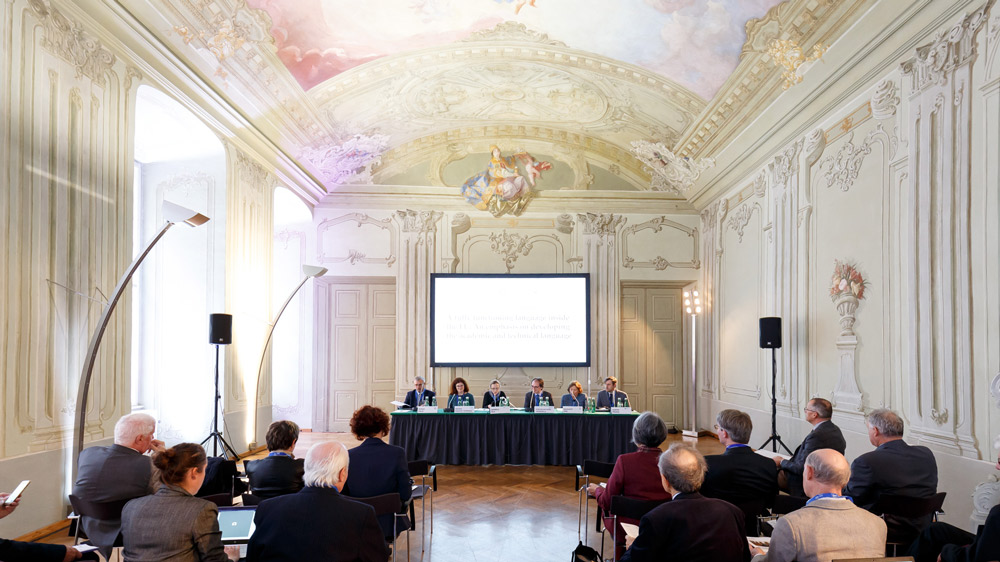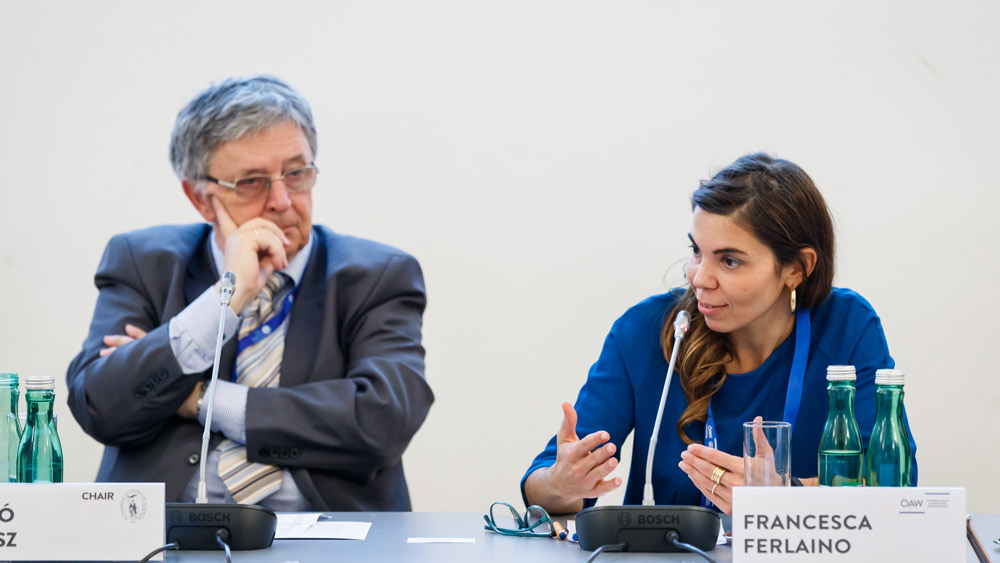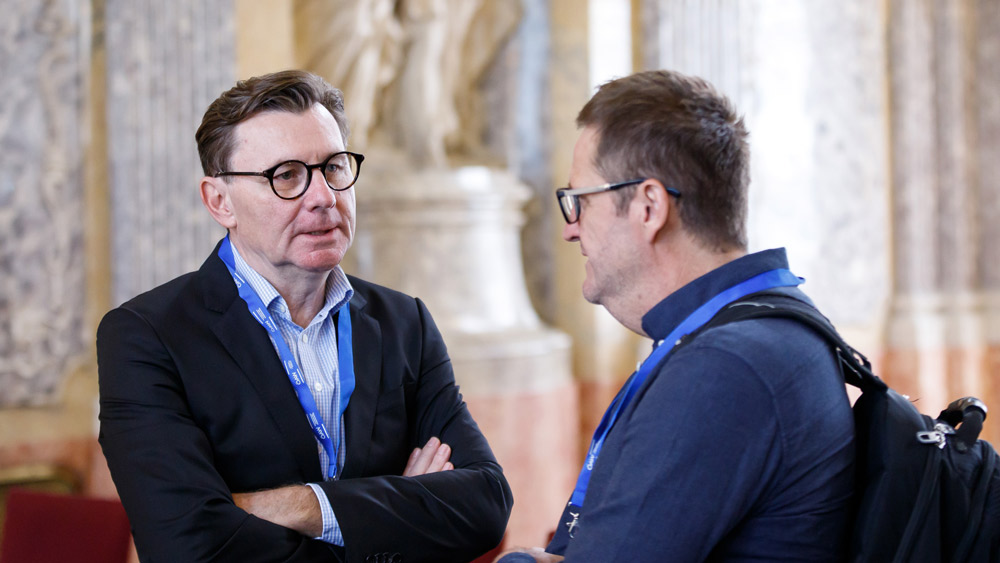What academies can learn from one another
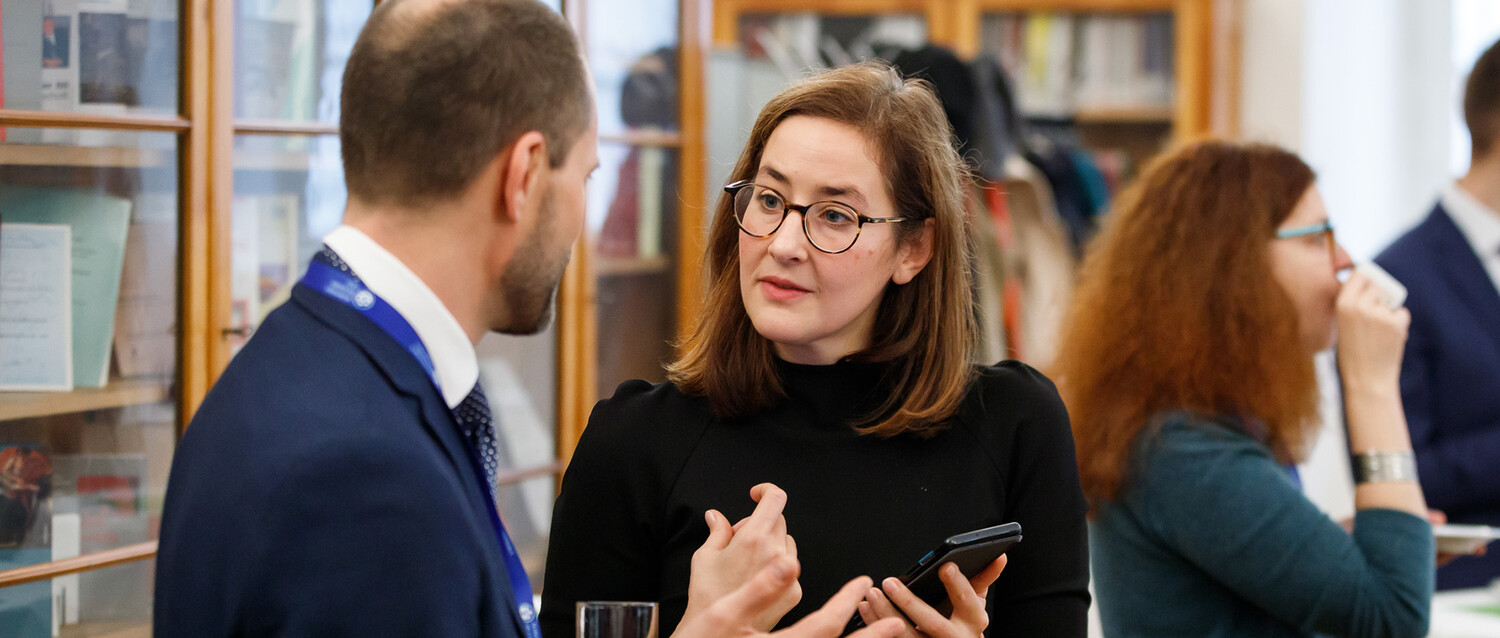
Six academies, six topics, one day: the Austrian Academy of Sciences (OeAW) launched a new international initiative last year and created the Joint Academy Day. The second such event took place this year at the OeAW. Last year, it was the Royal Netherlands Academy of Arts and Sciences visiting Vienna, while this time a total of six academies (including the OeAW) came together.
For one day, representatives of the academies from Poland, Slovakia, Slovenia, the Czech Republic and Hungary, together with their Austrian colleagues, dealt with current issues of science policy – to introduce different positions and to learn from each other. A total of six panels dealt, among other things, with the role of science academies in the different countries, ways in which children and young people can be inspired by research, and highly topical issues such as climate change and direct democracy.
The latter was also the focus of an interview with the political scientists Sonja Puntscher Riekmann from the OeAW and Simona Kustec from the Slovenian Academy of Sciences and Arts, which took place on the sidelines of the Joint Academy Day. In the interview, they provide an Austrian and a Slovenian perspective on the question: how much direct democracy does democracy need?
How much direct democracy does a democratic system need?
Puntscher Riekmann: Let’s say not too much. I am a strong proponent of representative democracy, not just for ideological reasons. Direct democracy has its place in democracy, no question, but it has to be used in moderation.
Kustec: I completely agree with you. What’s more, we have a problem in defining and understanding what direct democracy actually means. For me elections comprise the first and essential component of direct democracy. Nowadays populists refer a lot to direct democracy, claiming that elections are not the fairest way to go. As an advocate and believer in democracy, I would disagree with them.
Puntscher Riekmann: I am not sure if populists really question elections. Of course, they tend to extend the intervals between elections so as to have fewer than needed, but how they frame the whole topic is that, besides elections, which legitimate power, they want to see this power legitimated again by appealing to the people’s vote in referendums.
Don’t referendums strengthen democracy?
Puntscher Riekmann: Referendums are not based on a question that can be discussed in a sophisticated way, where you can see different interpretations of reality, different ideologies, and different preferences being put to debate. It is a simple yes-or-no-question. Many dictators have favoured direct democracy for that reason: they ask the people a yes-or-no-question and then gather legitimacy for something they have already decided. The development of representative democracy has been an important transformation in the 18th century, moving away from this very emotional approach to politics with a yes-or-no-answer, and towards the representation of different positions and preferences, allowing these to be discussed in a forum that has at least the characteristics of fairness, equality and rationality.
Isn’t the approval of direct democracy an expression of a desire to participate?
Kustec: The contemporary debate about direct democracy is mostly activated by the extreme left and the extreme right parties. If you follow Brexit, the whole story started with a politician, who even admitted afterwards that it was only his and his party strategy to gain votes. This is dangerous – for democracy and for its structure. It can destroy everything.
Puntscher Riekmann: If you look at the referendum on Brexit, with all the lies that came with it, it was not an informed decision that has been made – with all the far-reaching consequences we are witnessing now.
Kustec: And even in our central eastern European region, if you are monitoring our situation, currently we have a lot of populist political approaches, who want to return the power to the people through other ways as democratic elections. Really? We already have this power when the elections come around. What’s more, we have mechanisms for change if something is not going well. We have checks and balances, a complex structure of institutions monitoring each other. But: We need to respect them.
Are there any positive examples of direct democracy?
Puntscher Riekmann: The Swiss model, which is actually the only functioning model we have, operates with strict rules to produce fruitful direct democracy. It takes a lot of time to develop not only the rules but also the culture in which people are willing to engage, to inform themselves. If you are able as a political community to establish such a culture, direct democracy may be part of the political toolbox, but not the only one.
What role does social media play in this debate?
Puntscher Riekmann: Social media has changed the frame in which the whole debate takes place. Lies have always been part of public political debate. What we now have is a medium that boosts not only the possibility of lying, but also of creating a completely new framing where anybody has a yardstick to measure whether something is true or not. But: Normal people do not have the time for everyday scrutiny about facts and figures. The most difficult part in political life is to deal with insecurity, with uncertainty – and these demagogues offer people certainty. So, it is a battle of those yearning for certainty and those playing with this.
Kustec: It is also a question of responsibility and a question of who is behind social media? The main problem is that the citizens don’t have real choices, we have the feeling that we are being manipulated and that the political parties messed up. In our region the political parties appear as if they are part of a cartel.
Puntscher Riekmann: Can we introduce rules in social media or not? This question is a huge topic, where we are at the beginning.
Kustec: Our role as scientists is to speak about manipulation and truth – and to speak against that kind of non-transparencies, lying and frauds, that lies as a winning fourmula of success in populist demagogy.
Puntscher Riekmann: But we have a very difficult message to sell as scientists and that is that truth is relative.
AT A GLANCE
Sonja Puntscher Riekmann is a political scientist and a member of the OeAW. From 2003 to 2011 she was Vice-Rector of the University of Salzburg and, until her retirement in 2019, Professor of Political Theory and European Politics at the University of Salzburg.
Simona Kustec is a political scientist and a member of the Slovenian Academy of Sciences and Arts. She is Professor of Policy Analysis and Public Administration at the University of Ljubljana as well as Professor at the Venice International University in Italy.
The Joint Academy Day took place on November 15, 2019 at the OeAW and brought together representatives and members of the Polish Academy of Sciences, the Slovak Academy of Sciences, the Slovenian Academy of Sciences and Arts, the Czech Academy of Sciences and the Hungarian Academy of Sciences.
